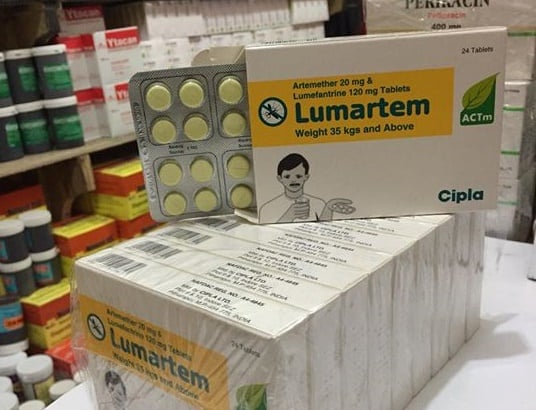Lumartem, Coartem… anti-malaria drugs at risk as Rwanda records first resistant parasites
A new study has discovered resistant parasites to artemisinin — a major anti-malaria drug — in Rwanda, the first of such to be recorded in Africa.
Common anti-malaria drugs in Nigeria made up of artemisinin include: Coartem (Artemether and lumefantrine), Combisunate, Lumartem, Artesunate (AS), and Amatem Softgel.
But the recent study, published in Nature, a scientific journal, revealed that malaria parasites were able to resist artemisinin in the treatment of the disease.
The study was done by scientists from the Institut Pasteur, in collaboration with the National Malaria Control Program in Rwanda (Rwanda Biomedical Center), the World Health Organization (WHO), Cochin Hospital and Columbia University (New York, USA).
Advertisement
To arrive at their findings, the researchers collected blood samples of patients in selected health centres in Rwanda and analysed them.
The results suggest a growing trend of the resistant parasites in the country, with 19 out of 257 patients analysed in one of the centres found to have one particular mutation.
“This study provides evidence for the de novo emergence of Pfkelch13-mediated artemisinin resistance in Rwanda, potentially compromising the continued success of antimalarial chemotherapy in Africa,” the researchers said.
Advertisement
The research also constitutes another blow to global efforts aimed at tackling malaria with continuous emerging resistant parasites undermining the effectiveness of successive drugs used to treat the disease since the introduction of chloroquine in the 1950s.
In the study, the scientists warned that such malaria parasites that developed resistance to earlier introduced drugs were “suspected to have contributed to millions of additional malaria deaths in young African children in the 1980s.”
Prior to the study, malaria resistant parasites to artemisinin were prevalent in south-east Asia — a development that started when the region recorded its first case in 2008.
Speaking to TheCable on the development, Olusegun Ojetola, a medical doctor in Nigeria, said artemisinin-based combination therapies (ACTs) are the most effective anti-malaria drugs approved by the WHO.
Advertisement
“Arteminisin is the major content that must be present in all anti-malaria drugs as approved by the WHO,” he said.
According to him, the research, if confirmed by WHO, signals a major setback to the fight against malaria in Africa as the continent is the worst hit by the disease.
“Let’s hope that doesn’t happen because there would be a pandemic in Africa. In Nigeria, for instance, ACT remains the only treatment for malaria so if resistance starts showing up, then Africa as a continent may be brought to an end,” the health expert said.
“Africa is the continent most affected by malaria due to many environmental factors which facilitate its spread. So, if there is no cure for malaria, that will spell doom to the entire continent. Statistics of mortality caused by malaria shows it is worse than COVID-19.”
Advertisement
Advertisement
Add a comment






